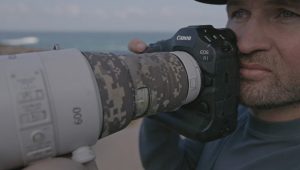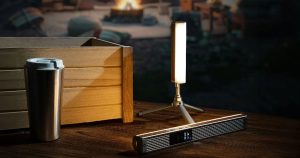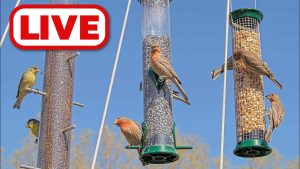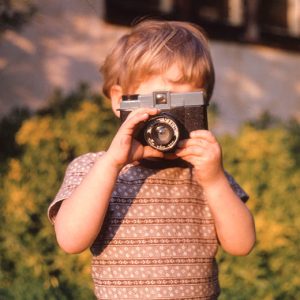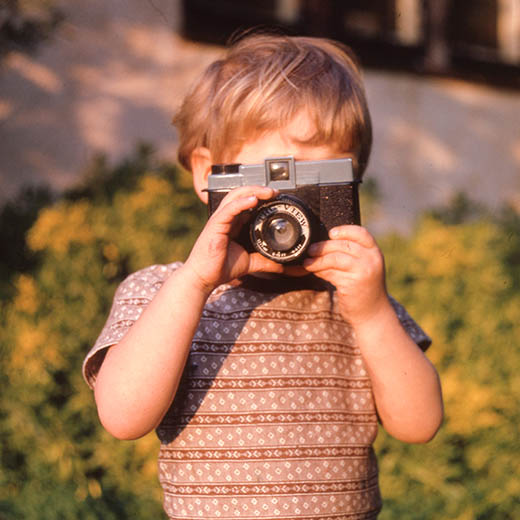
| Photo: Denis Baskin |
With experience comes wisdom. And for photographers, few things are as satisfying as sharing that wisdom with those just starting their photographic journey. It’s a chance to mentor, guide, and give back to the community that helped us grow.
Recently, a discussion in our forums caught our eye. The question posed was simple: “What have you learned that you would tell beginners?” The responses were insightful, offering a trove of knowledge perfect for sharing. In this article, we’ve gathered some advice from experienced DPReview forum users and some thoughts from our own editors.
The advice broadly falls into three categories: gear, technique, and the photographic process itself. Read on to discover what your fellow DPReview users said, and make sure to share your own hard-earned wisdom in the comments!
Gear: Don’t get distracted by shiny objects
It’s easy to get caught up in the allure of new cameras and lenses, but gear is only one piece of the puzzle. As sirhawkeye64, who started the forum thread, wisely points out, “I would have focused more on skill…and less on gear or having the latest gear or buying gear that I really never used, and perhaps instead learning to really use the gear I had.”
User yardcoyote echoed this sentiment, advising beginners to trust their instincts and avoid getting swept up in trends: “Almost all my mistakes happened because I didn’t trust myself and my photographic instincts. Now I know and trust that I don’t want zoom lenses, I don’t want wide angle, I don’t want burst… I don’t want to shoot Raw and do extensive work in post.”
“It used to bother me a lot that I wasn’t in the mainstream and that many people think I am not a ‘real’ photographer, at least partly because of these things. Now, I don’t care as much. I’m just gonna go over here and take pictures.”
Finding the right lenses can be a journey in itself. Editor Richard Butler suggests careful consideration: “Take some time to work out which other lenses you might need. A lot of people buy wide-angle or telephoto zooms, but you may find something like a portrait lens, a macro, or a bright 35mm prime if you like to capture the world as you see it.”
“The key thing is that you don’t need all of these; you may not need many lenses at all. But you need to work out what you enjoy and what you want to photograph before you make an informed decision about what lens to buy next.”
“I would have focused more on skill…and less on gear…”
For some, considerations of comfort and practicality are key. User mmartel wishes they had prioritized ergonomics: “I’ve found that grams and millimeters don’t matter to me at all, and big EVFs are great… Just because a camera is larger or heavier doesn’t mean it’s less comfortable to carry and use.”
User Leo_Yai emphasizes the importance of a manageable kit: “Keep the body size reasonable. Too small is too fiddly, too big stays in the garage too often, not taking images. Same for lenses… If you ever think, ‘Should I change the lens?’ then your carrying system is too cumbersome.” Ultimately, the best gear is the gear you actually use.
 |
| Many experienced photographers suggest buying used gear. If you don’t want to buy from a private party, you can often buy reliable used gear from shops like MPB.com (above). Some manufacturers sell refurbished products through their own websites. |
Finally, Editor Dale Baskin offers this reassuring advice: “Don’t obsess about having fancy gear or the newest camera. Buy something used in good condition… Don’t hesitate to buy refurbished or used gear.”
Technique: Master the fundamentals
While gear is essential, mastering photographic techniques is crucial for creating compelling images. User GreenEyesGTA advocates for learning manual focus: “My biggest leap in photography was when I stopped [using] AF/burst so much and took my time with MF [manual focus].”
User Claus H keeps it concise, suggesting a focus on the basics: f-stop, focal length, shutter speed, ISO, composition, leveling your camera, and color vs. black and white, along with skills like focusing on composition and leveling your camera.
 |
|
Focus on learning the fundamentals – both the fundamentals of photography and of your camera. Photo: Dale Baskin |
“React emotionally to your pictures,” Claus says. “Make them as good as you can, don’t become a technophobe about them. If an image has soul, it has soul, regardless of what it was shot with. Learn the technical, but educate your eyes. Once you have the basics down, carry a camera as often as you can, and shoot, shoot, shoot.”
Shooting a lot will help you get to know your camera, but Editor Mitchell Clark highlights the importance of exploring your camera’s features. “My photography journey started well into the digital age when even basic cameras had capable auto modes and a litany of complex features. In a lot of ways this was a blessing, but it also let me build some bad habits that took years to undo.”
“Once you have the basics down, carry a camera as often as you can, and shoot, shoot, shoot.”
“I shot in manual but pretty much ignored everything else. This helped give me a solid understanding of exposure, but it also left huge gaps in my knowledge about how cameras worked and what they were capable of.”
“Don’t make that mistake,” he implores. “While you probably shouldn’t read your camera’s manual cover to cover, I recommend taking a day to dive through the menus and make sure you have an understanding of what most of the options do. Today’s cameras have so many features and capabilities, and it’d be a shame if you didn’t use all the ones that fit your shooting style and needs.”
The photographic process: Find your voice
Beyond gear and technique, photography is about capturing moments, expressing creativity, sharing your vision with the world, and being true to yourself and your vision.
“Make the images [you] want to make, don’t be afraid to experiment, and don’t assume that what ‘everyone thinks’ and ‘everyone does’ are the right things for you, says yardcoyote.
SeeingSomeThingsMissingMany emphasizes the importance of finding your passion: “[Choose] a subject matter you really like that makes you want to photograph it a lot; [Find] an easy-to-use camera you enjoy that makes you want to use this camera again and again.”
 |
|
Choose a subject matter you really like and photograph it a lot. Finding your own niche in photography allows you to build expertise and shoot something you really enjoy. Photo: Dale Baskin |
Finding your voice and vision is about more than just taking great photos, though. Dale Baskin offers this helpful hint: “Find a niche. When you’re in learning mode, it’s tempting to take pictures of lots of subjects without much creative focus, which is natural because you’re learning your craft. As you get better, find one or two things you really love to shoot and get really good at shooting them. It allows you to become an expert and take your experience to the next level.”
While feedback is valuable, staying true to your vision is essential. As Mitchell Clark notes, “If the images you’re taking make you happy, it doesn’t really matter what other people think of them.” He also encourages sharing your work freely, reminding us that perfection shouldn’t be an obstacle to sharing our creativity.
“Make the images [you] want to make, don’t be afraid to experiment…”
With that in mind, user teejaywhy offers a simple but powerful reminder: “When sharing photos to friends or family (or random internet people, for that matter), remember: LESS IS MORE.”
Richard Butler agrees: “One of the key skills of photography is to be able to critically assess your own work. This not only lets you focus your efforts on the photos most worthy of processing and editing, but also helps you learn which things work and which things don’t, helping you develop as a photographer.”
Which brings us to the other thing he says he wished he’d known earlier: “Don’t judge your efforts too harshly at first: remember that everyone else is only sharing their best work.”

